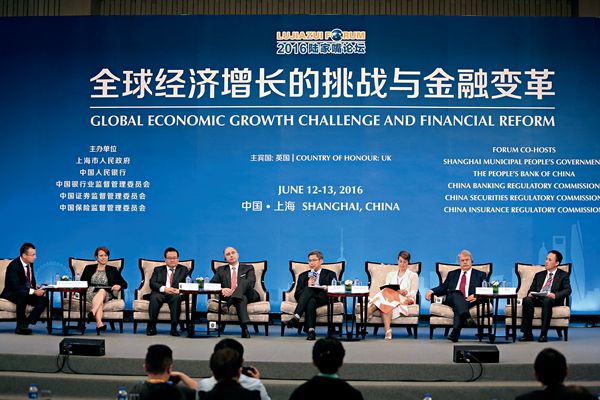China Will Continue to Open Up
China Today by KOU LIYAN, February 7, 2017 Adjust font size:
I went to Brussels this spring, right after the terror attacks on the airport and metro. It was midnight when I arrived but soldiers wearing body armor and armed with rifles could be seen everywhere, from the airport to the hotel.
The next day on my way to work, I saw a crowd of people in front of the EU headquarters carrying placards. A local friend told me that they were protesting against the TTIP (Transatlantic Trade and Investment Partnership). He sighed and continued, “People in France are also demonstrating because the government is reforming the labor law.” This European trip, though brief, gave me a direct perspective of the setbacks that globalization is experiencing in Europe.
|
|
|
Themed on global economic growth challenges and financial reform, the 2016 Lujiazui Forum commences in Shanghai on June 12, 2016. |
Foreign threats and domestic unrest are impediments to globalization. What’s worse, a few “black swan” incidents in 2016 have posed further threats: first Brexit, then the election of Donald Trump, who advocates “America First” and claims he intends to build a border wall with Mexico. The Trans-Pacific Partnership (TPP) was suspended before Trump entered the White House. Many people perceive the dawning of an age of anti-globalization: Major powers are re-focusing on domestic affairs; more and more people are becoming influenced by populism that is anti-elite, anti-establishment, and anti-globalization; barriers to international trade and investment are on the rise; and countries that own the world’s major currencies lack coordination. Geopolitical games, terrorist attacks, unrest among local ethnic groups, and religious conflicts spell trouble for economic networks.
Yet despite these barriers, China has vowed to continue to open up.
